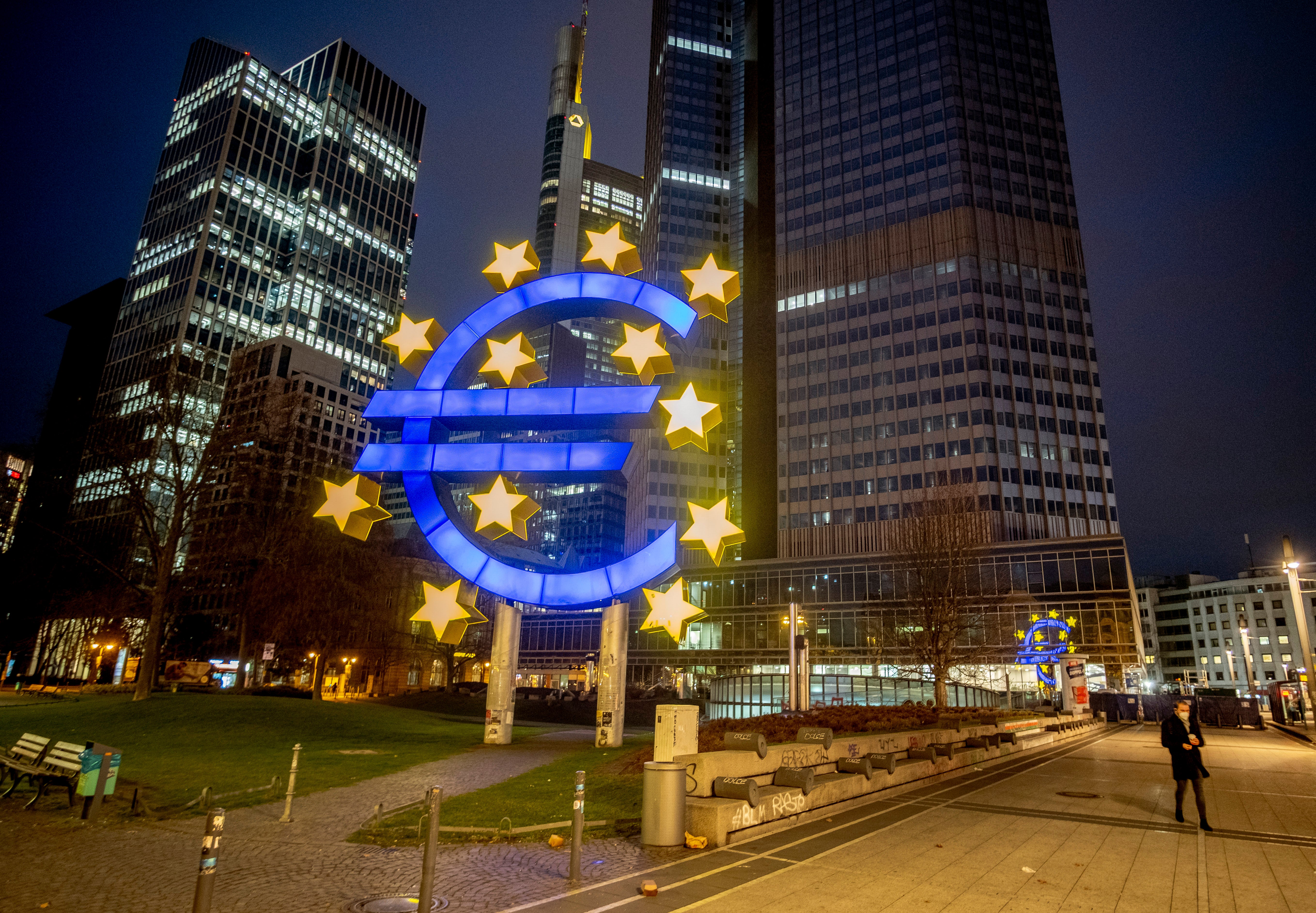Energy prices drive Europe inflation to highest since 2008
The European Union’s statistics agency says sharply higher oil and gas prices have helped push annual inflation in the 19 countries that use the euro to its highest in more than a decade

Your support helps us to tell the story
From reproductive rights to climate change to Big Tech, The Independent is on the ground when the story is developing. Whether it's investigating the financials of Elon Musk's pro-Trump PAC or producing our latest documentary, 'The A Word', which shines a light on the American women fighting for reproductive rights, we know how important it is to parse out the facts from the messaging.
At such a critical moment in US history, we need reporters on the ground. Your donation allows us to keep sending journalists to speak to both sides of the story.
The Independent is trusted by Americans across the entire political spectrum. And unlike many other quality news outlets, we choose not to lock Americans out of our reporting and analysis with paywalls. We believe quality journalism should be available to everyone, paid for by those who can afford it.
Your support makes all the difference.Sharply higher oil and gas prices have pushed annual inflation in the 19 countries that use the euro to its highest in more than a decade in September. Economists and central bankers say the jump in inflation is temporary — but the higher energy prices have governments nonetheless scrambling to ease the pain of higher utility bills for households.
The European Union statistics agency Eurostat said Friday that inflation came in at 3.4%, up from 3.0% in August and the highest since 2008.
The overall inflation level was boosted by a jolting 17.4% increase in energy prices.
Economists and the European Central Bank say the recent burst of inflation is temporary and will ease next year. That hasn't removed fears of price spikes and gas shortages this winter due to an extremely tight market for natural gas. Natural gas traded at 94.46 euros ($109.36) per megawatt hour in Europe on Friday, almost five times higher than at the start of this year. Reasons include strong demand in Asia, less supply from Russia, and cold weather this past winter that left reserves depleted.
Higher prices for natural gas and electricity have spread concern among European governments, which are taking steps to limit rises in residential utility bills through subsidies and tax cuts. Natural gas is a key fuel for generating electricity, so higher gas prices mean costlier electricity bills.
Core inflation, which excludes volatile fuel and food, was more modest at 1.9%.
Despite higher recent inflation readings, the European Central Bank has indicated it has no plans to tighten monetary policy in response. The central bank sees higher inflation as the result of transient factors such as supply bottlenecks and statistical comparisons to extremely low energy prices a year earlier during the depths of the pandemic recession.
The bank predicts inflation will recede next year, and ECB President Christine Lagarde has said it will not “overreact” by scaling back its support for the economy in order to counter inflation that is only temporary. The central bank's staff projections foresee inflation of only 1.7% next year and 1.5% in 2023, short of the bank's goal of 2% that's considered best for the economy.
The bank's support measures include 1.85 trillion euros ($2.14 trillion) in bond purchases slated to run at least through March 2022, a step aimed at holding down market borrowing costs for companies.
While the ECB has not indicated when it will end the program, inflation that could eventually hit 4% this year in Europe makes it “more likely that the ECB will scale back its asset purchases substantially in March,” wrote Jack Allen-Reynolds, senior Europe economist at Capital Economics, in an emailed comment.